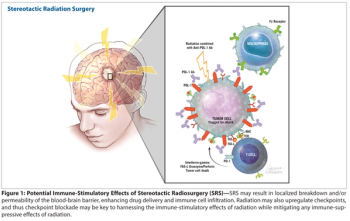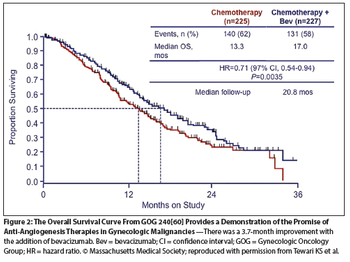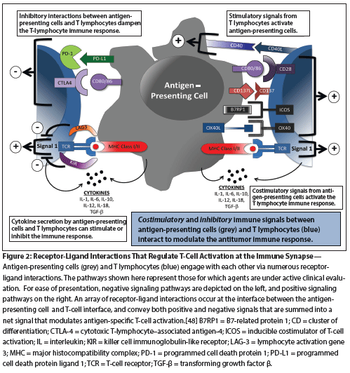
It is only recently that the radiation oncology community has acknowledged the immunogenic effect of ionizing radiation and started exploiting its clinical potential.

Your AI-Trained Oncology Knowledge Connection!


It is only recently that the radiation oncology community has acknowledged the immunogenic effect of ionizing radiation and started exploiting its clinical potential.

In this review we detail the rationale supporting a combination of immunotherapy and stereotactic radiation. Additionally, we discuss the evidence for the immune stimulatory effects of focused radiation and the role that radiation may play in enhancing the systemic treatment effects of immunotherapy.

There is good evidence that angiogenesis plays a central role in cervical cancer pathogenesis, suggesting a strong rationale for adding anti-angiogenesis agents to chemotherapeutic agents for the treatment of this disease.

The future role of immunotherapy in breast cancer is currently being actively investigated, so we anticipate that we will soon have further clues about the role of immunotherapy in breast cancer patients.

At worst radical prostatectomy is equal to radiation therapy in operable very-high-risk prostate cancer, and there are accumulating data to suggest that a surgery-first approach is better induction for multimodal therapy.

It is our opinion that surgery is inappropriate for very-high-risk prostate cancer and that a combination of EBRT and ADT should be the preferred treatment modality.

The purpose of this paper is to provide a review of site-specific treatment options that involve the targeting of angiogenesis in gynecologic malignancies.

In order for there to be a truly clinically significant breakthrough in targeted therapy, we need to further explore the tumorigenesis of gynecologic malignancies and identify the initiators and true drivers of these cancers.

The immune system is active in breast cancer, playing a dual role in tumor progression and in immune surveillance. Infiltrating immune cells are both prognostic and predictive of response to standard breast cancer therapies.